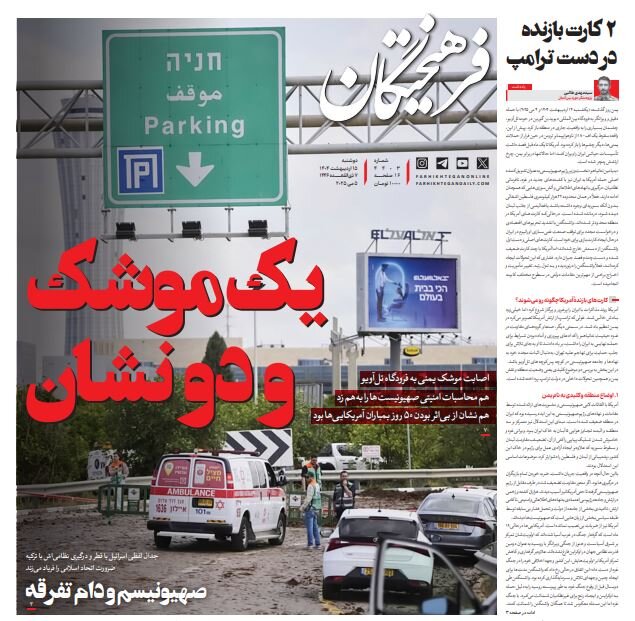Tehran-Farhiktegan analysed the ambiguity surrounding negotiations between Iran and the US, saying: They never consider it a failure or have reached a concrete outcome.
Recent developments in the White House have alienated optimistic predictions of the impending agreement, indicating that Washington is not only seeking early lifting of sanctions, but also pushing for negotiations in a more complicated direction by raising a nuclear-free issue against Iran regarding regional development. Meanwhile, the enthusiasm of some domestic analysts about the possibility of an agreement could lead to unrealistic expectations by the public, and weaken the Iranian negotiating team’s position on the US side. After a third round of speech in Oman, Abbas Aragci’s statement highlighted Iran’s careful approach, “emphasized the Foreign Ministry’s statement written after the imposition of a new round on suspicion of America’s severity. This situation indicates that consultations are covered in ambiguity and that greater accuracy is needed for a definitive assessment, whether optimistic or pessimistic.
Etemad: JCPOA Talks has fewer hurdles
In the memo, Etemado discussed changes in the current state of nuclear talks compared to the negotiations that led to the JCPOA in 2015. The newspaper states: In this region, other enemies of Iran are hard to imagine, apart from Israel. With this kind of competition, most prominent countries surrounding Iran do not want to raise tensions with Iranian others, particularly the United States, nor support a comprehensive solution to the Islamic Republic’s diplomatic issues. Unlike the current America, Europe is in a weakened position, and Israel is equal or more anti-Iranian. It also limits Trump’s authority to effectively lift sanctions, increases in nuclear sanctions and an imminent snapback are some of the topics to come. Therefore, you cannot expect a sudden opening. Perhaps it would be better for Iran itself to create a set of proposals to prevent initiatives from falling into the hands of American or Israeli think tanks and labs to contain Iran or interfere with negotiations.
Vatan-e-Emrooz: Chabahar is a strategic port
Vatan-e-Emrooz investigated the importance of Chabahar Port and wrote: Chabahar Port has a special place in Iran’s economic and trade strategy. The importance of this port is clear not only nationally but also regionally and internationally. It has great capabilities to become an international transport and trade hub. Chabahar Port as an important trade gateway can play an important role in the international corridor. The port is considered the centre of the transport of goods between Central and South Asian countries, allowing Iran to be transformed into one of the major regional trade routes. The trilateral agreement between Iran, India and Afghanistan demonstrates the port’s importance in enhancing regional cooperation and attracting foreign investment. Maximum use of Chabahar port’s capabilities will not only lead to trade development, but it will also affect the promotion of Iran’s political and diplomatic relations with regional countries and other influential players such as India and Russia. These interactions create appropriate infrastructure for regional economic partnerships and sustainable security.
Donya-e-eqtesad: It is possible to achieve equations related to nuclear enrichment
In an interview with Rahman Gallemanpur, a senior international affairs researcher, Donya et Ektesad discussed the postponement of negotiations between Iran and the United States. He said: Today there are two issues. If the US wants to limit consultations to nuclear issues, it is not impossible to reach an agreement on Iran’s nuclear enrichment. You can find some technical solutions that allow Iran to enrich uranium by 3.67% and give the US a sense of security. Of course, it remains to be seen whether the US wants to limit consultations to nuclear issues or raise missiles and local issues. If other issues are raised, negotiations could end with deadlocks. If both the US and Iran agree to limit consultations on nuclear issues and not seeking comprehensive agreements, they can find a way to resolve the enrichment issue.

